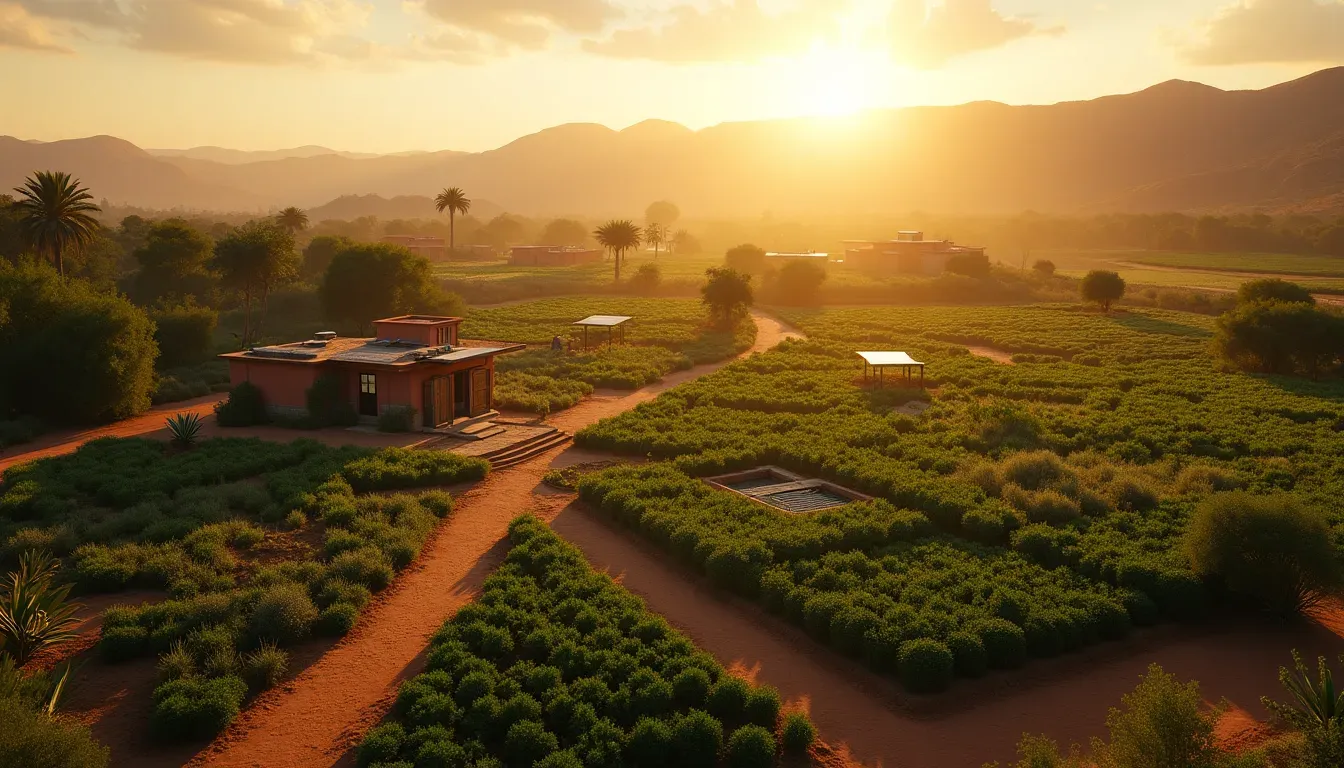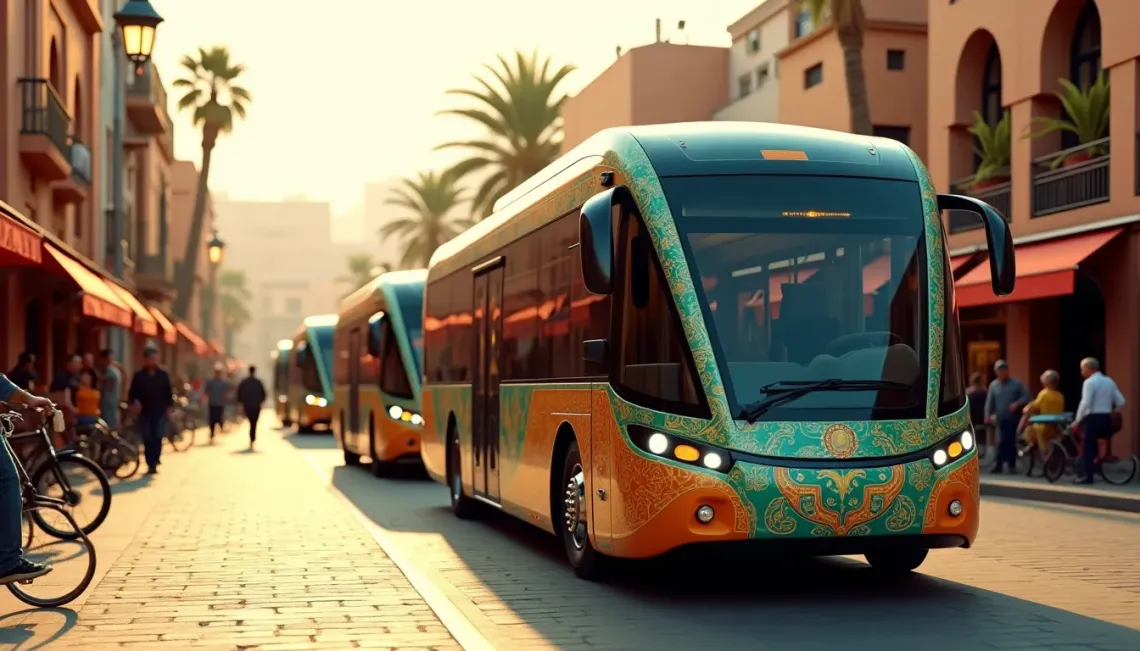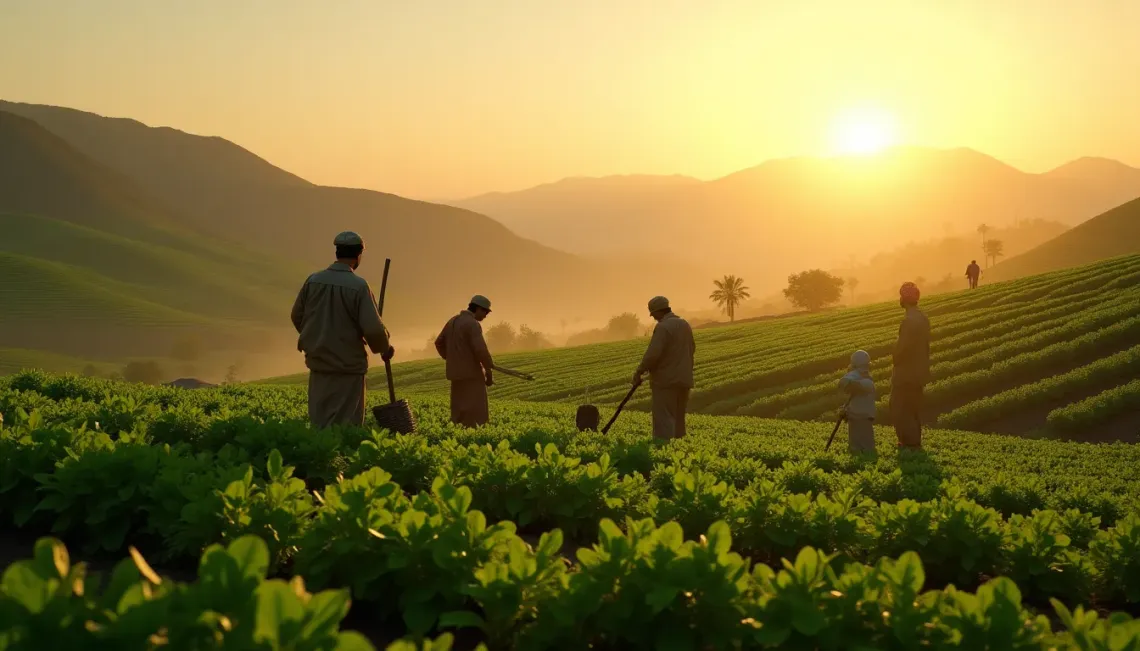Amidst the stunning landscapes of Morocco, a revolution is unfolding in the fields of agriculture. Permaculture, a sustainable farming method that harmonizes with nature, is taking root. This eco-friendly agriculture approach is transforming the way farmers cultivate their lands, promoting organic farming while preserving the environment.
Understanding Permaculture in Sustainable Farming
Permaculture is more than just a farming technique; it's a philosophy that encourages living in symbiosis with the earth. In Morocco, this approach has gained traction as farmers face the challenges of climate change and soil degradation. By integrating permaculture principles, they are not only preserving the health of the land but also ensuring economic resilience.
The Key Principles of Eco-Friendly Agriculture
At the heart of permaculture and sustainable farming are several key principles:
- Care for the earth: Prioritizing soil health and biodiversity.
- Care for people: Supporting local communities and economies.
- Fair share: Using resources wisely to reduce waste.
Through these principles, Moroccan farmers are achieving a more balanced and organic farming system that supports both ecological and human needs.
Permaculture Techniques in Morocco
Moroccan farmers are implementing diverse permaculture techniques to enhance eco-friendly agriculture:
Water Conservation
In arid regions, water is a precious resource. By utilizing rainwater harvesting and swales, Moroccan farmers are effectively conserving water, a vital element for sustainable farming.
Soil Improvement
Composting and mulching are common practices, enriching the soil naturally. These techniques help in maintaining fertile land, crucial for organic farming.
Polyculture and Companion Planting
Growing a variety of plants together not only increases biodiversity but also minimizes pest problems and enhances crop yield. This method is widely adopted in Morocco, contributing to a robust permaculture-based agriculture system.
The Benefits of Organic Farming in Morocco
Eco-friendly agriculture in Morocco isn't just beneficial for the environment; it offers several economic and social advantages:
- Increased resilience: Farms are better able to withstand climate extremes.
- Stronger communities: Organic farming supports local markets and creates job opportunities.
- Healthier produce: Consumers enjoy chemical-free, nutritious crops.
Challenges and Opportunities
Despite its benefits, implementing permaculture in Morocco comes with its challenges, such as the initial cost of redesigning farms and educating farmers. However, opportunities for growth abound, especially with increasing global demand for sustainable agriculture methods.
Organizations and local governments have started to promote these practices by providing resources and training, paving the way for wider acceptance and implementation across the nation.
Internal Linking Opportunities
For more insights into sustainable farming practices and organic agriculture, you might explore articles on sustainable agriculture techniques and organic farming benefits.
As Morocco embarks on this journey towards eco-friendly agriculture through permaculture, it serves as an inspiring model for other regions aiming for sustainable farming solutions in the face of global environmental challenges. The movement not only enriches the land but also empowers communities, proving that harmony with nature is both achievable and essential.




